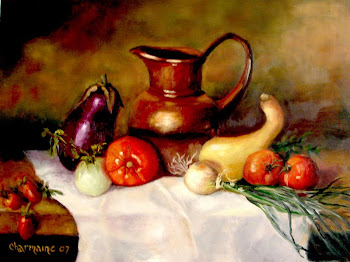I attended Woman’s Conference
this year at BYU and attended a class where Fiona Givens gave a presentation
titled: “Lord, I believe, help thou my
unbelief.” From Mark 9:24. When
the class was over I told my friend that I could listen at her feet all
day. I couldn’t wait to get the books
written with her husband Terryl Givens: The Crucible of Doubt and The God Who
Weeps. I had surgery on my foot the
first part of May and have been mostly off my feet for the last two weeks but I
can say they have been perhaps the most 2 spiritual weeks of my life as I have
spent the sweet hours reading these books.
When I finished I had the desire to go to the book store and get a pile
of books to pass out to my favorite people.
The beginning pages of The God Who
Weeps, has 8 recommendations from mostly non-Mormon scholars. This is how Robert P. George, Law professor
at Princeton describes the book:
Writing from the perspective of Mormon faith,
Terryl and Fiona Givens have produced a work of theological reflection that has
much to offer not only to Latter-day Saints, but to intellectually and morally
serious men and women of every religious persuasion who ponder the mystery of a
God who, though profoundly transcendent, reveals Himself to us, offers us His
friendship, and even shares our joys and sorrows. To be sure, readers who are not Latter-day
Saints will learn from “The God Who Weeps” a great deal about what Mormons
believe (including certain distinctively Mormon doctrines) and why they believe
it. But that is only part of the value
of the book. For even readers who do not
share certain fundamental tenants of the LDS faith, but who believe in a
personal, omnipotent and omniscient God, will benefit from the Givens’
thoughtful reflection on how such a God enters into the lives of imperfect
creatures like ourselves, lighting our paths, lifting us up when we fall, and
summoning us to share His divine life.”
Both of these beautifully
written books are written with a perspective from prophets, scriptures, classical
literature and inspired Christian thinkers.
The ideas melt into your heart with a warmth and tenderness that is hard
to describe. I will never see my deity
quite the same after reading “The God Who Weeps.” These books are not quick reads but take
thoughtful attention, sometimes reading passages over several times to meld the
meaning to your soul.
My patriarchal blessing tells
me something that I have always known, that I have a gift of faith. But in these words I felt an understanding of
those who struggle to believe and a hope that there is a way to function
comfortably in doubt. Not that I don’t
have questions, so the encouragements here have buoyed my simple faith also.
I am going to share the last
page summation of the Crucible of Doubt.
So, here, in sum, are the principal reasons
for “the hope that is in us.” We agree
with Nathaniel Hawthorne, who believed that “our Creator would never have made
such lovely days and have given us the deep hearts to enjoy them, above and
beyond all thought, unless we were meant to be immortal.” And if we are immortal, no eternal existence
makes sense separate and apart from an eternal community of loved ones,
presided over by heavenly parents who set their hearts upon us. We could never love a God “without body,
parts, or passions.” Who does not Himself feel love, or grief, or joy, or
gladness. Christianity gave us a God who
was willing to die on behalf of His creation; Joseph Smith added to that
conception a God who intends our full participation in “the divine nature,” who
will bestow upon every single one of His children all that they “are willing to
receive.” And who made Himself vulnerable enough to weep at our pain and
misery. That is a God to whom we are
powerfully drawn, and whom we gladly worship.
We have seen the power of the gospel to
transform human life. We can affirm, as
Gerard Manley Hopkins did, that “Christ plays in ten thousand places, lovely in
limbs and lovely in eyes, not his, to the Father, through the features of men’s
faces.” In new converts and returned
missionaries, who in their testimonies unexpectedly speak “with the tongues of
angels,” a simple eloquence not of their own resources. In the parting words of a beloved friend near
death, before whom the veil grows suddenly thin to transparency. In lives transformed and redirected, then
imbued with sudden beauty, to rival anything narrated by and Elizabeth Gaskell
or Victor Hugo.
Joseph Smith said, “You say honey is sweet,
and so do I. I can also taste the spirit
of eternal life. I know it is good; and
when I tell you of these things which were given me by inspiration of the Holy
Spirit, you are bound to receive them as sweet, and rejoice more and more.” We believe the doctrine of the Restoration to
be true for the same reason: It tastes
good.
I am not ready to lose the
spirit of these books so I begin again.






1 comment:
I just read The Crucible of Doubt two weeks ago and loved it. It just spoke to my heart. I feel like the Givens are truly inspired for our age.
Post a Comment